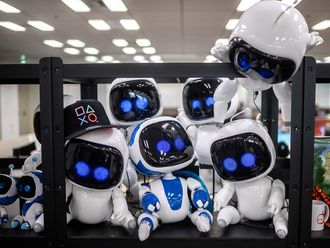
Technology is changing how companies do business. The way a company could have functioned even five years ago might not seem viable now. Michael Wharton, who heads the Software Development Solutions vertical at AKW Consultants, highlights this change, saying, "Digital transformation is reimagining our interactions. It's not about if, but how quickly we can adapt." By 2030, an estimated 85 per cent of companies will have to adapt to some of these transformations discussed here.
The exponential increase in computing power has led to various technological changes. One such change is the proliferation of mobile devices. The International Telecommunication Union estimates that almost 5.4 billion people use the internet. A majority of these people access the internet through their mobile phones. This trend is expected to increase with each passing year.
Consequently, companies will need to adjust their digital development strategies to cater to mobile devices, ensuring their services and applications are optimised for mobile usage to stay relevant and accessible to the vast majority of internet users.
Needless to say, if 5.4 billion people are using the internet, the amount of data generated is also unprecedented. By 2030, this will increase even further, partly due to the Internet of Things (IoT). To leverage this data for delivering value to customers, an Artificial Intelligence-led software development transformation is absolutely necessary. Artificial Intelligence and Machine Learning will help make sense of the incredible amount of data that is generated every day. They enable software to self-improve and become better at predicting user needs.
Additionally, integrating cloud computing into this landscape is essential for managing the vast volumes of data efficiently. The cloud offers scalable and flexible infrastructure solutions that support the storage, processing, and analysis of big data.
Adopting Agile and DevOps methodologies will also be essential in enhancing software development. These will ensure faster deployment and higher quality of software products. User experience (UX) will become even more important, focusing on making software that's not only functional but also engaging and user-friendly. With digital interactions on the rise, the success of software products will largely depend on their ability to offer a smooth and enjoyable user experience.
“With the multitude of software out there that might serve the same function, the way yours will stand out will depend on this refined user experience,” says Wharton on the matter. Cyber security will also play an important role in software development. The importance of building strong security measures to protect user data and privacy cannot be overstated. As digital threats become more advanced, progressing with rigorous security protocols is not just beneficial but necessary. This strategy helps protect user data and privacy, reduces risks, and builds trust in digital solutions.
By 2030, companies must transform their operations to provide customers with efficient services powered by the latest technologies to remain relevant in the market. Wharton highlights the importance of navigating the future with openness, stating, “While we cannot always predict a future that's changing at an incredible speed, we can definitely prepare ourselves. Our ability to continuously learn and innovate will be the key to tapping into endless possibilities.”














